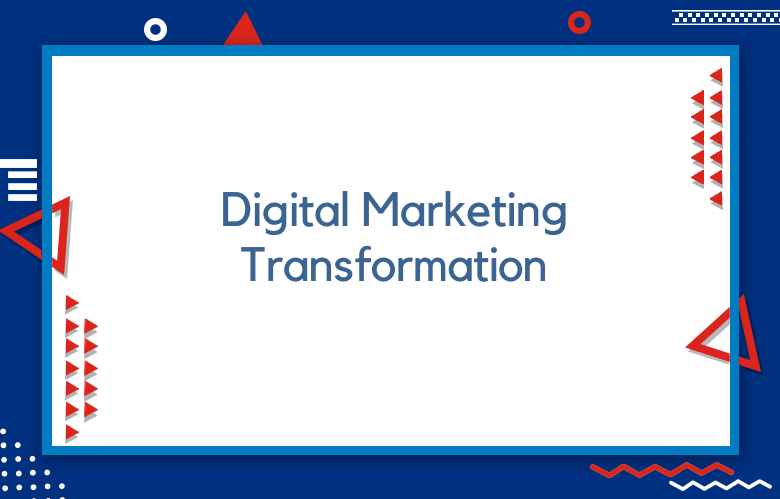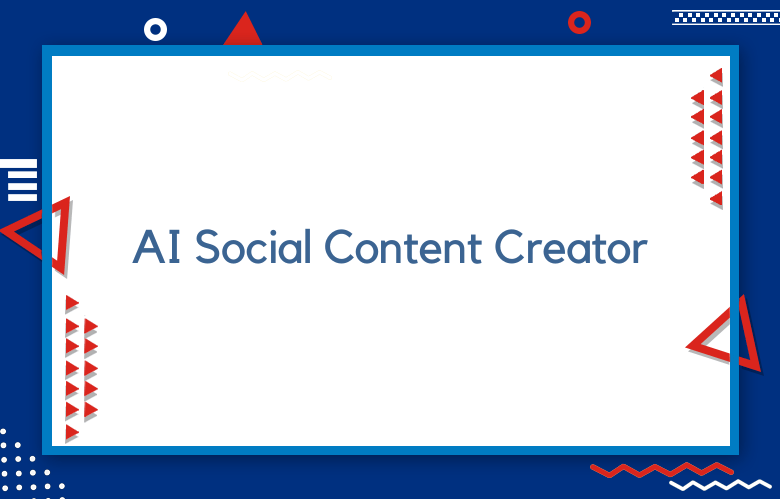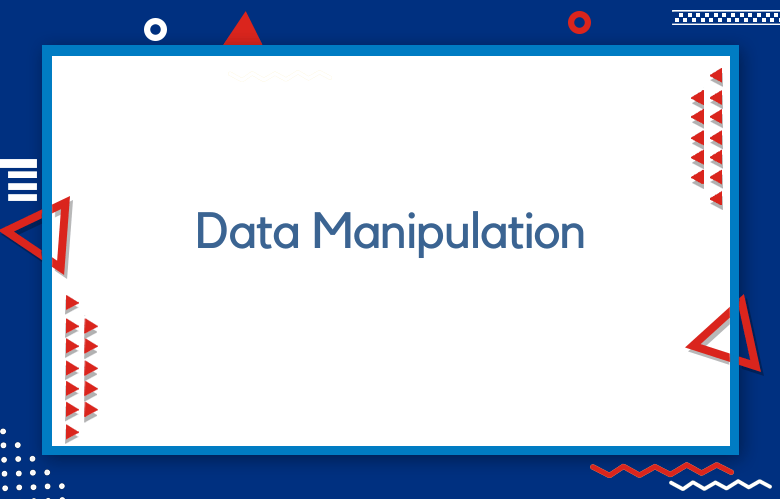Digital Marketing Transformation: How Technology is Changing the Game

In today’s digital world, technology’s impact on our lives no denies it. But what about its impact on businesses? The answer is that technology has enabled organizations to transform their digital marketing approaches and achieve incredible results.
Let’s take a closer look at how technology and digital marketing are inextricably linked and how organizations can benefit from this powerful combination.
Technology has drastically changed how businesses advertise and market their products and services.
With the emergence of digital marketing, companies can now reach potential customers worldwide, allowing them to maximize their visibility and customer base.
To stay ahead of the competition, companies must embrace digital marketing transformation as part of their business strategy.
What is Digital Marketing Transformation?
Digital Marketing Transformation is a process that involves utilizing technology to transform existing marketing strategies into more effective ones.
It consists of leveraging data-driven insights to create campaigns tailored to specific audiences. Companies can quickly identify which channels will work best for them and use those channels to reach potential customers and increase sales.
The Benefits of Digital Marketing Transformation
There are several benefits associated with digital marketing transformation. One significant benefit is increased efficiency.
Companies can save time by streamlining processes such as creating campaigns, managing budgets, analyzing results, etc., without sacrificing quality or impact.
Digital marketing transformation allows companies to understand their target audiences better and tailor their campaigns accordingly. It enables companies to create more effective campaigns that reach potential customers in a meaningful way.
Digital marketing transformation allows companies to track results more closely, providing valuable insights into what works best for their business needs and goals.
The Power of Technology in Digital Marketing
Technology has revolutionized digital marketing by allowing marketers to reach customers more effectively and efficiently than ever.
With the help of technology, marketers can now target specific audiences, optimize campaigns, track conversions, and measure ROI far more accurately than they ever could before.
Technology also makes it easier for marketers to track customer behavior across multiple channels, gather customer preference data, create personalized customer experiences, and drive higher engagement rates.
These capabilities make it easier for organizations to get more value from their digital marketing efforts.
Digital Transformation & Automation
Combining technology and digital marketing has also enabled businesses to embrace automation in their marketing efforts.
Automation tools enable marketers to automate mundane tasks such as scheduling social media posts or sending emails to focus on more critical tasks such as analyzing data or creating new strategies.
This saves time and frees up resources so that marketers can allocate them toward areas where they can significantly impact their organization’s performance.
Personalization & Optimization
Technology allows companies to personalize their digital marketing efforts to meet each customer’s needs better.
With advanced data analytics tools, organizations can gain insights into customer behaviors and preferences to deliver personalized experiences tailored specifically for each customer.
This capability enables organizations to increase customer engagement and create more meaningful relationships with them over time.
Technology enables marketers to optimize campaigns quickly based on real-time data to adjust their strategies accordingly without spending too much time or money manually testing different variables.
AI-Powered Ad Targeting
Ad targeting is one area where technological advances have drastically changed the game.
With AI-powered ad targeting, marketers can now serve more relevant ads to potential customers who are more likely to engage with them, leading to higher click-through rates and better ROI on campaigns.
On top of that, AI-based algorithms can also help optimize campaigns on the fly, meaning less time spent manually adjusting settings and more time spent strategizing about future campaigns.
Social Media Automation
Social media automation tools have been around for a while, but they’ve become increasingly sophisticated in recent years.
This means marketers can now use automated tools to schedule posts across multiple platforms, monitor interactions with customers and prospects, track key performance metrics like engagement rate or follower count over time, and even generate insights into upcoming trends or customer behaviors with predictive analytics.
In short, these tools make managing social media accounts much more accessible than ever before.
Content Optimization Tools
Content optimization tools are another great way for marketers to get ahead in the digital transformation game.
These tools allow marketers to quickly analyze content across various channels (e.g., website pages or blog posts) for SEO opportunities to ensure their content is appropriately optimized for search engines.
They also allow marketers to easily create engaging visuals, like infographics or videos, that can be used for social media campaigns or other forms of advertising.
Many content optimization tools come with built-in analytics capabilities so that marketers can track the performance of their content over time—making it easier to identify areas where improvements need to make.
Technology + Digital Marketing = Digital Marketing Transformation
Technology and digital marketing are two powerful components that, when combined, can lead to dramatic changes in the digital marketing landscape.
Digital transformation is how organizations use technology to improve customer experience, services, products, and operations.
Marketers can better understand and target customers across multiple channels by leveraging digital technologies such as cloud computing, analytics, mobile devices, wearable technology, and virtual reality.
With improved data collection and analysis capabilities, marketers can identify key trends within customer behavior that allow them to optimize campaigns and boost ROI.
The combination of technology and digital marketing is leading to a new era of digital marketing transformation.
Through automation processes such as programmatic buying and artificial intelligence (AI), marketers can better understand customer needs while optimizing ad spending.
Automation processes also allow marketers to streamline manual tasks associated with traditional marketing campaigns, thus freeing up resources for more creative work.
Advancements in personalization have enabled brands to deliver highly targeted messages that engage customers on a more personalized level.
AI-driven chatbots have further allowed marketers to respond quickly to customer inquiries efficiently while providing an engaging customer experience.
These factors combine to create an environment where businesses can leverage digital technologies for tremendous success in their marketing efforts.
Digital Marketing Transformation Can Help Your Business Grow
Digital marketing transformation can help your business grow in several ways.
By leveraging the latest technologies, like artificial intelligence (AI) and machine learning, companies can better understand customer needs and wants, creating more effective strategies and campaigns tailored to each customer’s needs.
Digital marketing transformation allows companies to access powerful analytics tools that provide invaluable insights into customer behavior that can then use to improve their campaigns’ effectiveness.
Technology also enables businesses to interact with their customers in real-time.
Companies can respond quickly to customer queries and complaints through chatbots and social media platforms or provide timely updates on product launches or other newsworthy events.
This can help build strong customer relationships by showing them that you are listening and responding quickly to their concerns.
Digital marketing transformation allows companies to reach a larger audience through search engine optimization (SEO), content creation, influencer marketing, pay-per-click (PPC) advertising, and other tactics.
By creating engaging content that resonates with potential customers, businesses can reach various audiences across different channels and increase their brand visibility online.
This helps ensure that your message reaches its intended target audience promptly.
Digital Marketing Transformation Consulting
Digital marketing transformation consulting helps businesses reimagine their online presence for maximum impact.
This entails a comprehensive review of the customer journey and carefully examining the customer messaging to improve customer experience.
It also involves analyzing customer data and leveraging technology to optimize campaigns.
This approach allows businesses to uncover new opportunities to engage customers and build lasting relationships.
The process begins with a thorough customer data analysis, including demographics, psychographics, buying habits, and online behavior.
Companies then use this information to create customer personas that help them better understand their target audience and craft messages that resonate with them.
Businesses can leverage technology-enabled tools such as contextual marketing to deliver targeted content at critical moments in each consumer’s journey across various channels.
In addition to providing relevant messages, digital marketing transformation consulting helps companies understand how to optimize campaigns using search engine optimization (SEO) and other tactics to reach more people.
Companies can drive higher engagement rates by optimizing each user experience step while reducing cost per acquisition (CPA).
This approach also allows marketers to measure performance by tracking metrics such as repeat visits, average order value (AOV), average time on site (ATOS), conversion rate optimization (CRO), ROI per channel/campaign/ad group/etc., bounce rate, cart abandonment rates, etc.
As such, digital transformation consulting can help move a business from traditional marketing tactics towards more efficient digital ones. Finally, it provides valuable insights into competitive advantages that can be leveraged for maximum effect to increase market share and maximize profits.
Conclusion
The power of technology cannot be overstated when it comes to transforming the way businesses approach digital marketing today.
By harnessing the power of technology, businesses have taken advantage of automation tools, personalization capabilities, optimization techniques, and data analysis capabilities to drive better campaign results while saving time and money.
Technology has completely revolutionized how we approach digital marketing today—and will continue to do so well into the future!
Call: +91 9848321284
Email: [email protected]



